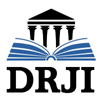DEVELOPMENT OF AUDIO VISUAL LEARNING MEDIA ANDROID MECHANICAL MEASURING TOOLS FOR IMPROVING LEARNING OUTCOMES AT VOCATIONAL SECONDARY SCHOOL
Abstract
The low value of Competency Unit Test (UUK) and Mid-Semester Exam (UTS) in Basic Work Automotive Engineering (PDTO) basic competency of mechanical measuring instruments, especially using and read the measurement results of the vernier caliper, micrometer and dial indicator at SMKN 8 Bandung. Users Android among students are very many and continue to develop, it is possible that Android technology is used as a learning medium for mechanical measuring instruments. The objectives of this research are (1) To create and develop learning media for basic competency of android-based mechanical measuring instruments, (2) to see the learning achievement of students with the basic competencies of mechanical measuring instruments, and (3) to see the responses of students using android-based applications in learning. This study uses thedevelopment model ADDIE (Analysis, Design, Development, Implementation, and Evaluation). The research design used the Pre Experimental Design with the type of One Group Pre Test Post Test. The results of this study indicate an increase in understanding of using and reading the measurement results of mechanical measuring instruments after applying Android-based learning media in the moderate category.
Keywords
Full Text:
PDFReferences
Agustino, L. (2020). Analisis kebijakan penanganan wabah covid-19: Pengalaman Indonesia. Jurnal Borneo Administrator, 16(2), 253-270.
Berggren, N., & Eimer, M. (2016). Does contralateral delay activity reflect working memory storage or the current focus of spatial attention within visual working memory?. Journal of Cognitive Neuroscience, 28(12), 2003-2020.
Chen, C. (2017). Science mapping: a systematic review of the literature. Journal of data and information science, 2(2), 1-40.
Fitrianingsih, R., & Musdalifah, M. (2015). Efektivitas penggunaan media video pada pembelajaran pembuatan strapless siswa kelas XII SMK Negeri 1 Jambu. Fashion and Fashion Education Journal, 4(1), 1-6.
HAßLER, Bjoern; MAJOR, Louis; HENNESSY, Sara. (2016). Tablet use in schools: A critical review of the evidence for learning outcomes. Journal of Computer Assisted Learning, 32(2), 139-156.
Herawati, E. (2017). Upaya meningkatkan motivasi dan hasil belajar siswa menggunakan media pembelajaran kartu domino matematika pada materi pangkat tak sebenarnya dan bentuk akar kelas IX SMP Negeri Unggulan Sindang Kabupaten Indramayu. JNPM (Jurnal Nasional Pendidikan Matematika), 1(1), 66-87.
Ismail, I. M., Zainal, M., & Halim, H. (2019). Expert review on games for basic graphic course via m-Learning. Journal of Techno-Social, 11(2), 33-36.
Jia, J., Chen, Z., & Zhang, J. (2022). The application and effect of smartphones and an online tutoring system CSIEC for vocabulary drilling through nine semesters. International Journal of Mobile Learning and Organisation, 16(3), 248-265.
Khairina, K., Alberida, H., Fitri, R., & Ardi, A. (2021). The effect of applying cooperative learning model on student competence: literature study about student facilitator and explaining. Jurnal Atrium Pendidikan Biologi, 6(1), 57-66.
Kong, L. N., Qin, B., Zhou, Y. Q., Mou, S. Y., & Gao, H. M. (2014). The effectiveness of problem-based learning on development of nursing students’ critical thinking: A systematic review and meta-analysis. International journal of nursing studies, 51(3), 458-469.
Kurniawan, B., Wiharna, O., & Permana, T. (2017). Studi analisis faktor-faktor yang mempengaruhi hasil belajar pada mata pelajaran teknik listrik dasar otomotif. Journal of Mechanical Engineering Education, 4(2), 156-162.
Mcconatha, D., Praul, M., & Lynch, M. J. (2008). Mobile learning in higher education: An empirical assessment of a new educational tool. Turkish Online Journal of Educational Technology-TOJET, 7(3), 15-21.
Mukhlis, M. (2017). Pembelajaran model inquiri terbimbing pada materi besaran dan satuan untuk meningkatkan keterampilan generik sains dan hasil belajar mahasiswa. Lantanida Journal, 5(1), 29-41.
Rahmatullah, M. (2011). Pengaruh pemanfaatan media pembelajaran film animasi terhadap hasil belajar. Jurnal penelitian pendidikan, 12(1), 178-186.
Ramadani, E. M., & Nana, N. (2020). Penerapan problem based learning berbantuan virtual lab phet pada pembelajaran fisika guna meningkatkan pemahaman konsep siswa sma: Literature review. JPFT (Jurnal Pendidikan Fisika Tadulako Online), 8(1), 87-92.
Ramadhani, D. Gilang. (2016). Pengaruh penggunaan media mobile learning berbasis android terhadap prestasi belajar ditinjau dari kemampuan memori pada materi pokok sistem koloid kelas XI SMA Negeri 2 Purwokerto Tahun Ajaran 2015/2016. Jurnal Pendidikan Kimia (JPK), 5 (4), 16-25.
Ramisetty-Mikler, S., Nievar, M. A., & Jordan, T. (2019). Structure and psychometric properties of the father involvement scale used in a retrospective pretest–posttest design. Journal of Social Service Research. 46(2), 200-210.
Sibarani, H. P., Komaro, M., & Sukrawan, Y. (2019). Implementasi mobile learning berbasis aplikasi smartphone untuk meningkatkan hasil belajar siswa pada mata pelajaran teknik pemesinan bubut. Journal of Mechanical Engineering Education, 6(1), 42-50.
Sutrisno, V. L. P., & Siswanto, B. T. (2016). Faktor-faktor yang mempengaruhi hasil belajar siswa pada pembelajaran praktik kelistrikan otomotif SMK di Kota Yogyakarta. Jurnal pendidikan vokasi, 6(1), 111-120.
Wijaya, R. E., Mustaji, M., & Sugiharto, H. (2021). Development of mobile learning in learning media to improve digital literacy and student learning outcomes in physics subjects: systematic literature review. Budapest International Research and Critics Institute (BIRCI-Journal): Humanities and Social Sciences, 4(2), 3087-3098.
Zawacki-Richter, O., Marín, V. I., Bond, M., & Gouverneur, F. (2019). Systematic review of research on artificial intelligence applications in higher education–where are the educators?. International Journal of Educational Technology in Higher Education, 16(1), 1-27.
DOI: https://doi.org/10.17509/jmee.v8i1.35533
Refbacks
- There are currently no refbacks.
Copyright (c) 2021 Journal of Mechanical Engineering Education

This work is licensed under a Creative Commons Attribution-ShareAlike 4.0 International License.
Indexed by:
ISSN: P 2356-4997
View My Stats
 Journal of Mechanical Engineering Education (Jurnal Pendidikan Teknik Mesin)
Journal of Mechanical Engineering Education (Jurnal Pendidikan Teknik Mesin)








